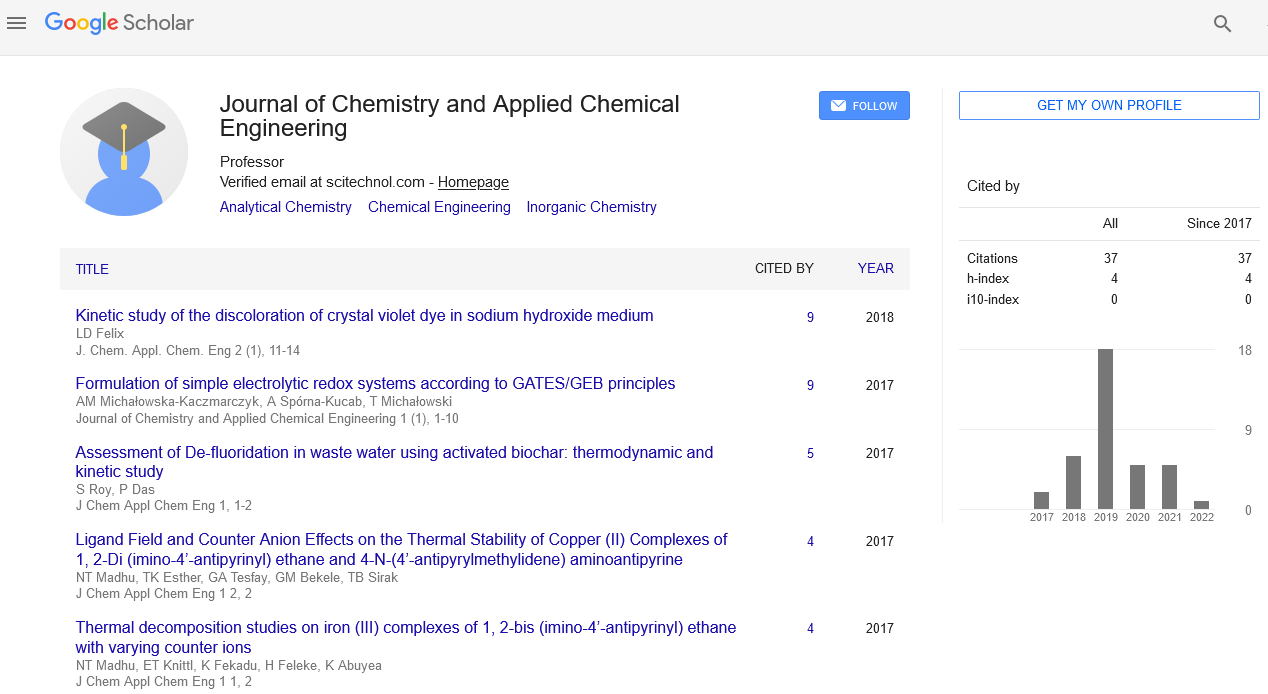Antagonist effect of ZnONPs on Adipocytes through the inhibition of peroxisome proliferator-activated receptor gamma (PPARγ)- a novel approach
Manikandan Arumugam, Balaji P, Srinivasan V, Arun S, Rajkumar K S, Dinesh Babu M, Thirumurugan R
Bharathidasan University, India
: J Chem Appl Chem Eng
Abstract
Nanotechnology is a fast emerging field which deals with the synthesis of nanoparticles having a variety of applications in various fields. Zinc oxide nanoparticles were synthesized biologically using plant leaf extract of Syzygium cumini (Java plum) as a reducing agent. This medicinal plant has various properties attributed to the presence of bioactive compounds such as phenols, flavonoids, and tannins in different parts of the plant, although lack in the knowledge on their action of mechanisms. Synthesis of nanoparticles was confirmed by the UV- Vis peak at a specific wavelength and characterized by X-ray diffractometer (XRD), Fourier transform infrared spectroscopy (FT-IR), Scanning electron microscopy (SEM) and Transmission Electron Microscope (TEM). The bio stabilized nanoparticles were studied as a potential antioxidant, antimicrobial agent. ZnoNPs improve many of the indices in various diabetic dysfunctions. In vitro models will be the best option for the screening phase of drug discovery and testing the pharmacological activity of the compound. With this evidence, this study was designed to evaluate the invitro anti- diabetic nature of the ZnONPs in Adipocytes, particularly PPARγ (peroxisome proliferator-activated receptor gamma) which plays a critical role in peripheral glucose homeostasis and insulin sensitivity. PPARγ was inhibited by ZnONPs and enhance the insulin sentivity and lipid accumulation. This study confirmed the efficiency of ZnONPs as the potential anti-diabetic agent.
Biography
E-mail: manikandan0312@gmail.com
 Spanish
Spanish  Chinese
Chinese  Russian
Russian  German
German  French
French  Japanese
Japanese  Portuguese
Portuguese  Hindi
Hindi 